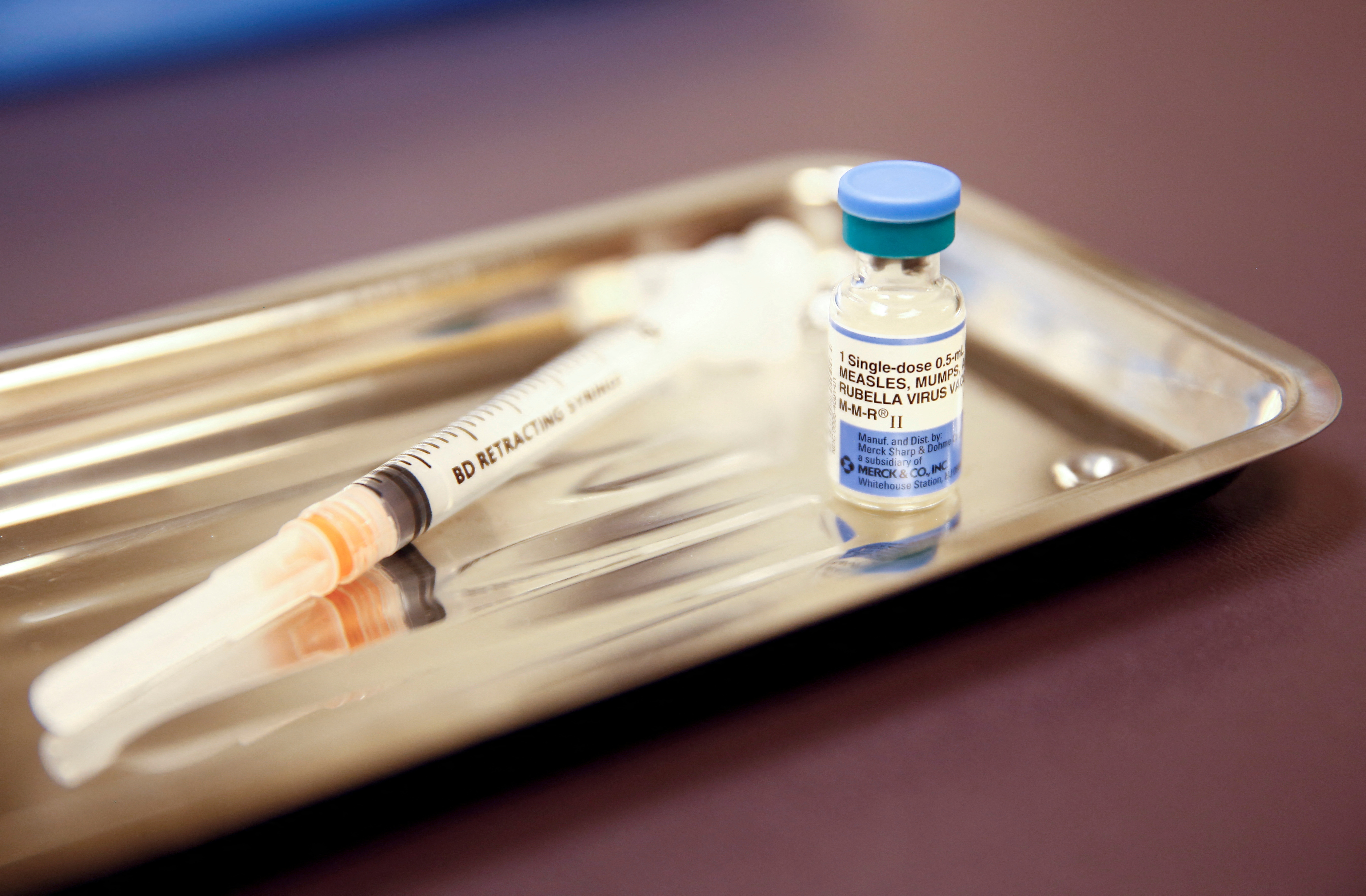
Measles cases have surged by nearly 80 percent worldwide this year, the United Nations said on Wednesday adding that the rise in cases of measles was a forewarning of the likely outbreaks of other diseases.
The coronavirus pandemic interrupted vaccination campaigns for many diseases around the world, creating a “perfect storm” that could now put millions of children’s lives at risk, the United Nations Children’s Fund (UNICEF) and the World Health Organization (WHO) said in a statement.
“Almost 17,338 measles cases were reported worldwide in January and February 2022, compared to 9,665 during the first two months of 2021,” the UN agencies said, adding that cases of highly-transmissible measles tend to show up quickly when vaccination levels decline.
The agencies are now concerned that the outbreaks of measles “could forewarn outbreaks of other diseases that do not spread as rapidly”.
Reported worldwide #measles cases
🔴 17,388 Jan-Feb (2022)
🔴 9,665 Jan-Feb (2021)That's a rise of 📈79%
WHO and @UNICEF warn of a 'perfect storm' of conditions – ripe for serious outbreaks of vaccine-preventable illnesses https://t.co/jjmwgWGt9Q pic.twitter.com/r04UvGTSVg
— World Health Organization (WHO) (@WHO) April 27, 2022
There have been 21 large and disruptive measles outbreaks in the last 12 months up to this month, most of them in Africa and the eastern Mediterranean, UN data shows.
Somalia recorded by far the most measles cases in the last 12 months with more than 9,000 cases, the UN data shows, followed by Yemen, Afghanistan, Nigeria and Ethiopia – all countries facing some form of conflict.
There are also fears that the war in Ukraine could spark a resurgence of the disease in the country, which had recorded Europe’s highest rate of measles between 2017-and 2019.
Impact ‘felt for decades’
More than 23 million children missed out on routine vaccinations in 2020 as the COVID-19 pandemic spread – the largest number of children to miss vaccinations in more than a decade.
The UN agencies said that 57 vaccination campaigns in 43 countries were postponed at the start of the pandemic and they still have not been completed, affecting 203 million people, most of them children.
The pandemic continues to place pressure on healthcare facilities and staff, taking attention away from vital vaccination for long-standing and deadly diseases.
“Now is the moment to get essential immunisation back on track and launch catch-up campaigns so that everybody can have access to these life-saving vaccines,” WHO chief Tedros Adhanom Ghebreyesus said in the statement.
The disruptions to immunisation services will be “felt for decades to come”, he said.
Measles is a disease caused by a virus that attacks mainly children. The most serious complications include blindness, brain swelling, diarrhoea, and severe respiratory infections.
Vaccination uptake of at least 95 percent is the best way to prevent the disease from spreading, though many countries fall far short of that goal.
Somalia is at just 46 percent for vaccination takeup, according to UN data.







